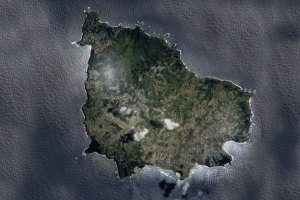ATSB to feel PAIN over Pel-Air Investigation
A confidential group known as the Professional Aviators Investigative Network (PAIN) has raised concerns over the ATSB review of the Pel-Air ditching report.
Late last year, the ATSB agreed to review the report into the 2009 ditching of a Pel-Air aeromedical flight at Norfolk Island, after a Canadian review highlighted anomalies with the investigation report.
In a submission to the Senate Standing Committee on Rural and Regional Affairs and Transport (RRAT) written in December, the group has criticised the ATSB’s decision to use one of their own people to lead the review.
“… the ATSB [has] elected to utilise Dr Michael Walker of the ATSB to lead the investigation,” the PAIN submission points out. “We believe that to be effective, any investigation should be conducted independently and not involve ATSB, the commissioners or staff if only to preclude any suspicion of ‘internal’ influence or external bias being raised.”
PAIN is also concerned that the terms of reference announced by General Manager Aviation Safety Investigations IanSangston do not go far enough.
“The terms of reference cited by Mr Sangston are narrow and only mention the ‘report’ itself. Whilst the industry acknowledges that the report was substandard, there is little doubt that the investigators conducted their work with integrity and within the prescribed guidelines. Indeed, the early stages of the ATSB report were exemplary and clearly directed toward serious safety recommendations being made.
“We believe little will gained by utilising scarce resources re-investigating the original ATSB investigative ‘reports’.”
Instead, PAIN points the finger of blame for the original Pel-Air investigation report squarely at the both CASA and the ATSB and hints at deeper issues.
“Our greatest concern is that a deliberate, calculated manipulation of the national aviation safety system was attempted. It is not a ‘one off’ aberration. We firmly believe that the subsequent actions of both the Civil Aviation Safety Authority (CASA) and the ATSB were proven, by the AAI [RRAT inquiry] committee, to grossly pervert the conclusions of the ATSB investigation to suit a clearly predetermined outcome, thus denying industry valuable, safety related knowledge and information.
“It is the process by which these subsequent events occurred which demands an independent investigation conducted transparently in public. We believe the Senate Committee is the right reporting and oversight platform for that investigation. The committee Senators are well briefed, informed and have a firm, current understanding of what transpired during the events subsequent to the Pel-Air aircraft ditching off Norfolk Island.
“Further, the Estimates committee is very clearly ‘awake’ to the machinations of the various aviation oversight bodies and will not easily be misled or confounded by ‘technical’ issues.
“We submit that any other form of investigation will not withstand the scrutiny of industry experts; as the initial premise is fatally flawed.”
PAIN describes itself as “a loosely organised, informal, confidential network which has formed and expanded over a number of years. There are approximately 1000 associates of the network; many participants, in one form or another may be properly considered expert witnesses.”
Its stated aims are to conduct independent investigations to provide aviatiors with a defence against “unfair, unreasonable or incorrect” made by CASA and its flight and airworthiness inspectors.
The members of PAIN remain largely anonymous to the general public, although it is known the group gave evidence to the original RRAT inquiry into the Pel-Air ditching.
.



